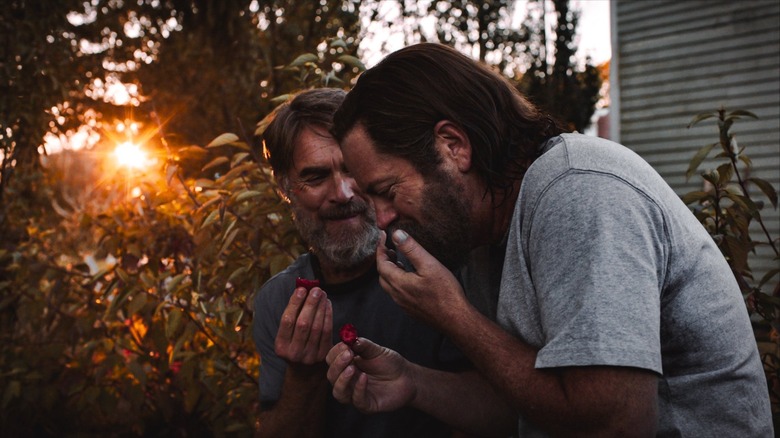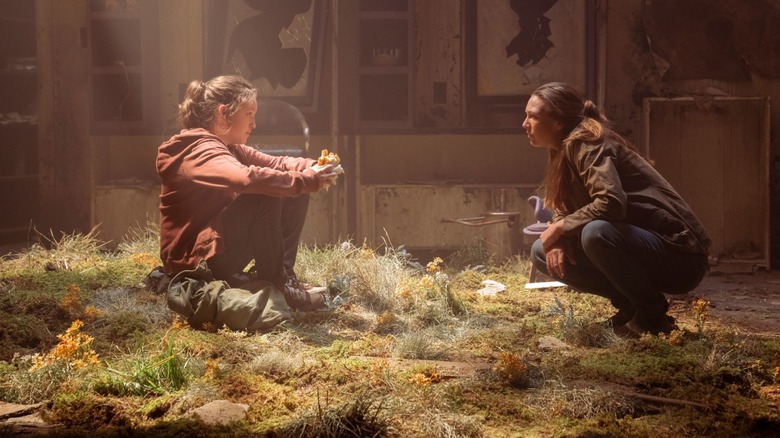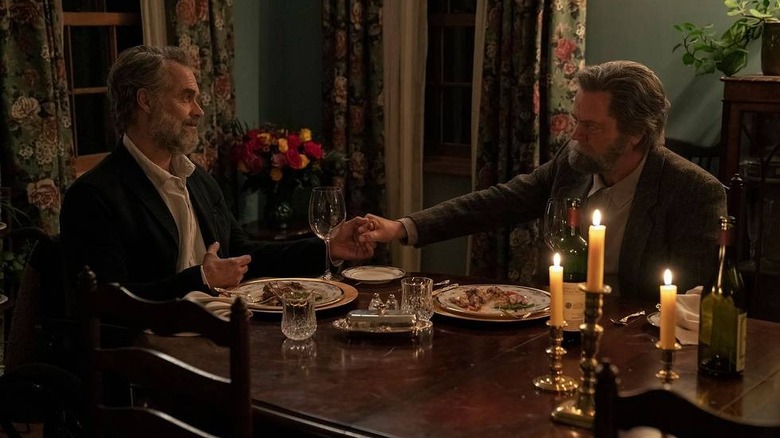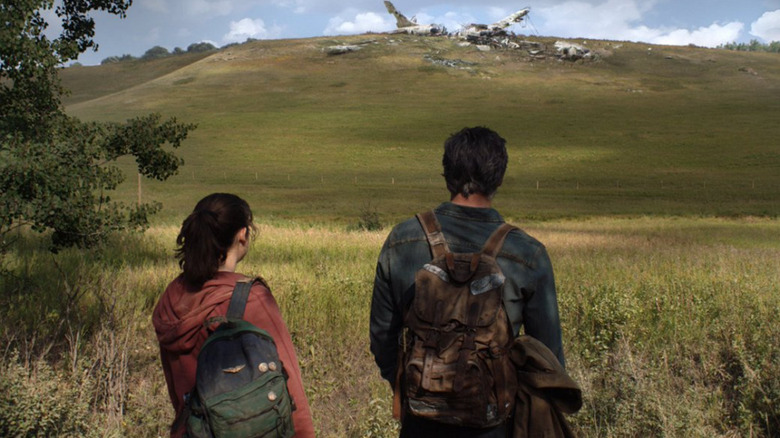In HBO's The Last Of Us, Death Isn't A Game Over
This article contains spoilers for "The Last of Us."
I've never been shy about how dreadful I am at playing video games. I am far more accustomed to seeing the GAME OVER screen than I am to the ending cutscene, which often makes me feel like a colossal failure. My princess is always in another castle, it's always dangerous for me to go alone because I have nothing to take with me, and I've lost count of how many times I've been cursed with the red font reading "wasted." The overwhelming majority of video games hinge on survival, with death as a sign that you've made a mistake, you took a wrong turn, you weren't strong enough to defeat the boss, or that, in many instances, you just weren't good enough.
I spend an inordinate amount of time thinking about death — real-life death — because I was diagnosed with pancreatic cancer at the age of 23 and given a 96% mortality rate. It was recommended that I write up a will when the only thing I had to bequeath to anyone was student loan debt, but that was nine years ago.
When you're diagnosed with cancer, people often refer to it as a "battle," which I've always found insensitive. A battle implies that there are winners and losers, treating life as if it's a video game to be won. Death is not a sign of weakness, but a natural conclusion to all of our stories. HBO's adaptation of "The Last of Us" has thus far brought a great deal of dignity to the deaths of its characters, refusing to treat their passing as a sign of defeat.
Influencing beyond the grave
"The Last of Us" is set in a world overrun with fungi-infected zombies, cloaked in death and destruction. The series opens with the same devastating loss as the game, with Joel's daughter Sarah meeting an untimely end. Much of Joel's motivation is in response to Sarah's death, but her story is more than just a plot device. Although Sarah is only shown in the first episode, her presence and influence hang over Joel's every waking moment whether he acknowledges it or not. His apprehensive relationship with Ellie is absolutely a result of the pain he has from losing his daughter, forced into a parental role that he was denied.
The same can be said for the second episode, in which Joel's longtime smuggling partner Tess was killed in a way that diverts from the game. Her final moments are tragic but triumphant, taking control of her fate in whatever way she can. Tess' final wish to see Ellie taken to safety becomes the compass that directs Joel through the wasteland, turning him into a man who operates predominantly under the influence of deceased loved ones.
Death is an inevitable part of life, and there are plenty who view a character's death as "cheap" story motivation, but I've never subscribed to that sort of mindset. When my family found out I was "going to die," it inspired life-altering changes all around. America is a death-denying culture, and the fact we consider death to be too morbid or too taboo to effectively process has a direct impact on the way we view death in entertainment.
Neither Sarah nor Tess needed to die for "The Last of Us" to tell an impactful story, but they did die because death is a part of every life's story.
Death on your own terms
The third episode of "The Last of Us" was dedicated to showing the relationship between Bill and Frank, the antithesis of what was presented in the games. The world is broken, humanity has been destroyed, and yet somehow two people found each other. Bill and Frank's queer love story is full of conflict, but not based in violent homophobia or even mushroom-faced zombies. No, their story explores the unflinching agony of realizing that your partner may die before you, and determining whether or not a life without them is one worth living.
I met my wife the year I was declared in remission but she knows that I am essentially a ticking time bomb. It's not a matter of if I get cancer again, but when. Before I met her, I was alive, but I certainly wasn't living. I was a lot like Bill — inexplicably angry, paranoid, and unbearably lonely. And then, like Frank falling into one of Bill's traps, she walked into my life and changed everything. For the first time since receiving a death sentence, I actively wanted to live again.
After two decades, Frank develops a terminal illness and makes the decision to end his life on his own terms. He wants one last good day with the love of his life, which Bill tearfully provides. In their final moment, Bill reveals that he will also be dying with Frank, despite being healthy and stocked with enough supplies to stay alive. But to do so would mean a life without Frank. Years prior, Bill told Frank, "I was never afraid before you showed up." Being afraid means you have something worth losing. Bill faced death years ago when the cordyceps infection first spread, but losing himself pales in comparison to losing Frank.
Finding your purpose
When Bill tells Frank that he's going to die with him, he explains, "This isn't the tragic suicide at the end of the play. I'm old. I'm satisfied. And you were my purpose." The two retreat to their bedroom, lock the door, leave open the window, and die in each other's arms. When Joel and Ellie finally arrive at their seemingly abandoned home, they find a letter from Bill to "probably Joel." In it, Bill leaves a final message:
"I used to hate the world and I was happy when everyone died, but I was wrong because there was one person worth saving. That's what I did: I saved him. And I protected him. That's why men like you and me are here: We have a job to do. And God help any motherf***ers who stand in our way."
Up until now, Joel has not fully understood his purpose in a life surrounded by death other than to just "stay alive." But through death, Joel finally realizes that there's more to life than just surviving. He's spent so much time trying to avoid a GAME OVER screen that he's never actually found the purpose of avoiding it in the first place. No matter how Joel "plays" or what route he takes, the natural conclusion of his story will end the same way as Sarah, Tess, Bill, and Frank — he's going to die someday. But no matter what happens, death is not a GAME OVER screen, but the end of a chapter in the long game of life. The decisions Joel and Ellie make will be felt long after they're gone ... as will the last of us all.



